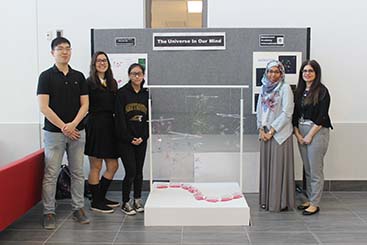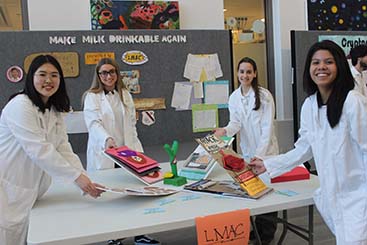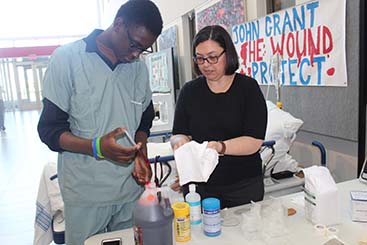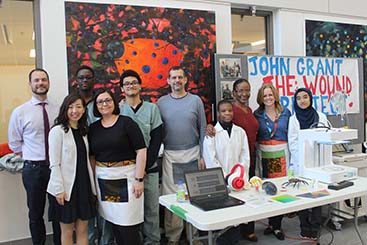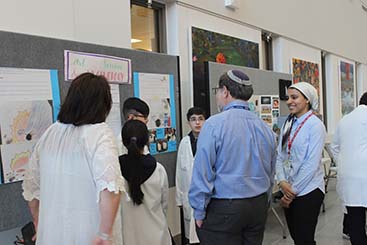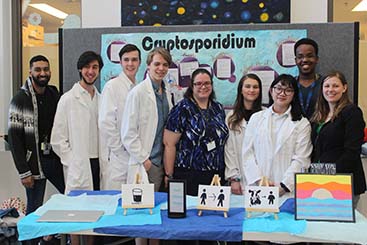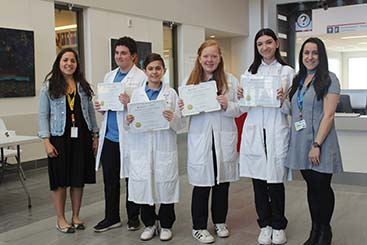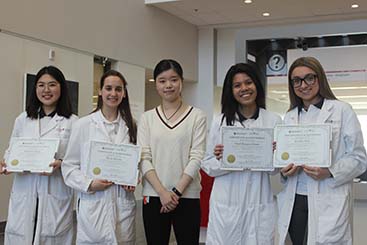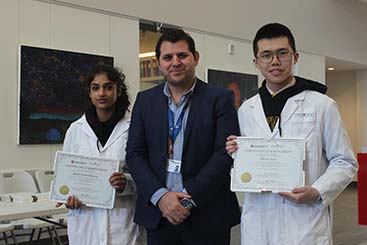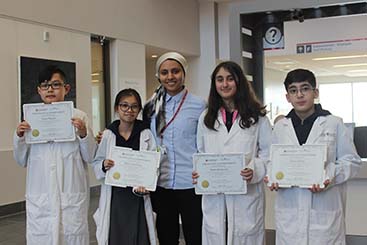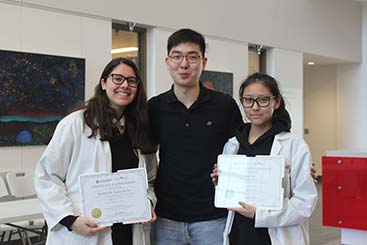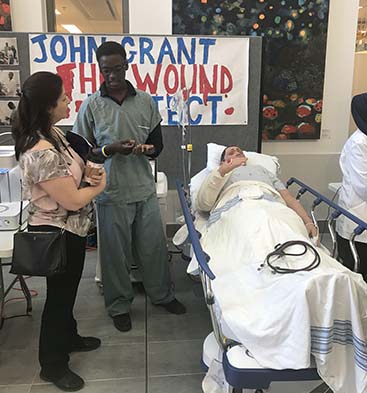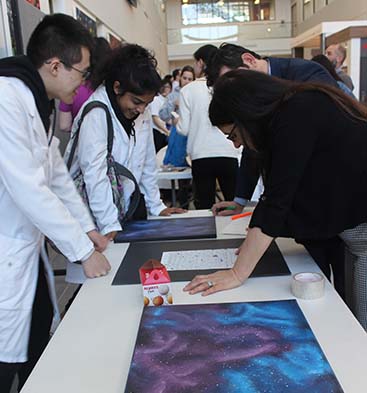Source: MUHC
Six weeks after linking up with research trainees and project coordinators as part of a partnership between the English Montreal School Board (EMSB) and the Research Institute of McGill University Health Centre (RI-MUHC), 30 proud high school students excitedly returned to the RI-MUHC to showcase their final projects.
The event closed a successful and promising collaboration involving seven high schools from the EMSB aimed at engaging youth in STEAM (Science, Technology, Engineering, Arts and Mathematics) projects. At the heart of this unique partnership was an opportunity to provide tools for dialogue and exploration, pushing students to think critically, artistically and creatively, like future innovators.
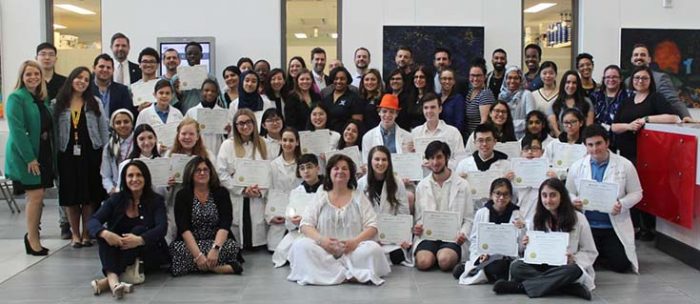
Rayan Primus, 16, learned to design an artificial wound using 3D printing and a cybernetic patient simulator called “Bob.”
“It was exciting, it was fun,” says Primus, a student at John Grant High School, a special needs school in Côte St-Luc. “I am not sure if I would have learned this in any other places. This was amazing!”
The initiative was launched on March 13, 2019 in the presence of Federal Transport Minister Marc Garneau, along with the head representatives of the MUHC, the RI-MUHC and the Faculty of Medicine at McGill University (Watch the video of the launch).
“Each student picked something they thought they’d be interested in and ended up with amazing projects,” says Anna Villalta, EMSB Assistant Director of Education and Technology Services. “I’m impressed with the outcomes and the confidence they gained from working with scientists.”
Local students worked in collaboration with RI-MUHC trainees – all masters and PhD students – on projects that included: Understanding how cutting-edge technology can help treat cancer; investigating the causes of cow milk allergies; studying a parasite you can get by drinking water in North America; and growing neurons.
“We did some research on the parasite cryptosporidium online and started putting our poster together after school. Then we came to the laboratory, spoke to the researchers for several hours and ran some tests to detect the parasite in people. We learned a lot about it, it was so much fun,” says Sarah Mucci, 16, from Vincent Massey Collegiate.
“The enthusiasm of the students is infectious; seeing their curiosity for science was like looking at myself in the past, and reminds me of why I got into science,” explains Eisha Ahmed, a PhD student in Dr. Bruce Mazer’s laboratory. “As a mentor for this STEAM initiative, I have the opportunity to share some of the skills I’ve picked up over the years, hopefully inspiring some to continue along that path in the future.”
“To see the reaction in the students’ eyes and the pride they had in presenting their projects makes me so proud. I feel we gained a lot out of this, probably more than they did,” adds Penny Chipman, RI-MUHC Manager of Oncology Research at the Centre for Innovative Medicine, who was one of the co-mentors on the wound project.
The event ended on a cheerful note as research trainees awarded surprise Certificates of Merit to students, who held them proudly in front of their teachers and mentors.
“The point of this initiative is not to make dozens of future scientists or doctors. It is to inspire, at an early age collaboration and team spirit, to be fearless and think out of the box using any, and all aspects of the STEAM disciplines to produce a project,” says Jenny Koulis, who manages the Office of Research Administration, at the RI-MUHC, and led the EMSB & RI-MUHC STEAM Initiative. “I am proud of the commitment our research trainees have brought to the projects and their students. It’s a win-win for everyone.”
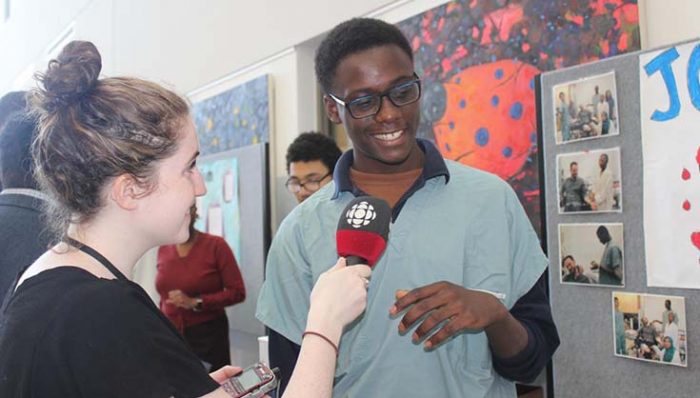
May 23, 2019

